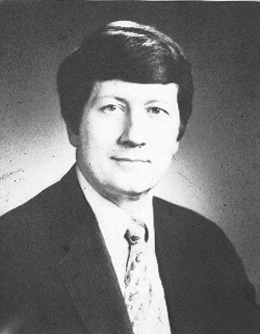On May 21, 1979, Robert Murray becomes superintendent of Seattle City Light upon his confirmation by the City Council. The confirmation process was lengthy and contentious when Murray's lack of experience in a management job and poor performance in prior positions came to light. After 15 months, Royer will ask Murray to resign because of "a lack of strong, effective, decisive leadership (which) led to a serious decline in the morale at City Light" (The Seattle Times) and lack of progress in key programs.
When Charles Royer ran for mayor in 1977, he pledged to fire Superintendent Gordon Vickery (1920-1996), but he found that Vickery had a contract through 1979. In October 1978, Vickery was nominated for a federal job. Royer put Murray's name forward to succeed him. Royer was impressed by Murray's ideas for conservation and alternative energy sources.
Councilman Randy Revelle, chair of the City Council utilities committee opposed the nomination because Murray was not qualified. Murray had been a consultant in Oregon who had worked on energy issues. Revelle supported his position with affidavits from employers and the fact that Murray had never supervised more than 10 people and had never fired anyone. City Light was the nation's fourth largest public utility and employed 1900, one third of the city's workforce. The final city council vote was 5-4.
The change in management came at a time when City Light was struggling with new directions in energy supply and personnel practices. A hallmark of Royer's administration was energy conservation to supply the additional load needed in the 1980s. Nuclear power plants under construction by the Washington Public Power Supply System were experiencing astronomical cost overruns. Lawsuits and audits criticized City Light for race and sex discrimination.
On August 22, 1980, Royer asked Murray to resign. The action was triggered when Murray had reorganized the top management of the utility without waiting for a management study on the issue. He was unable to explain his move to the City Council personnel committee. Royer's stated reasons for removing Murray was his weak management, serious personnel problems, and faulty communication.
Royer assumed full responsibility for naming Murray to City Light "at the wrong place at the wrong time" (Seattle Times). Murray said, "I should have paid more attention to politics, that was our big mistake" (Seattle P-I).
It would take Royer five months to name long-time City Light insider Joseph Recchi as superintendent.

